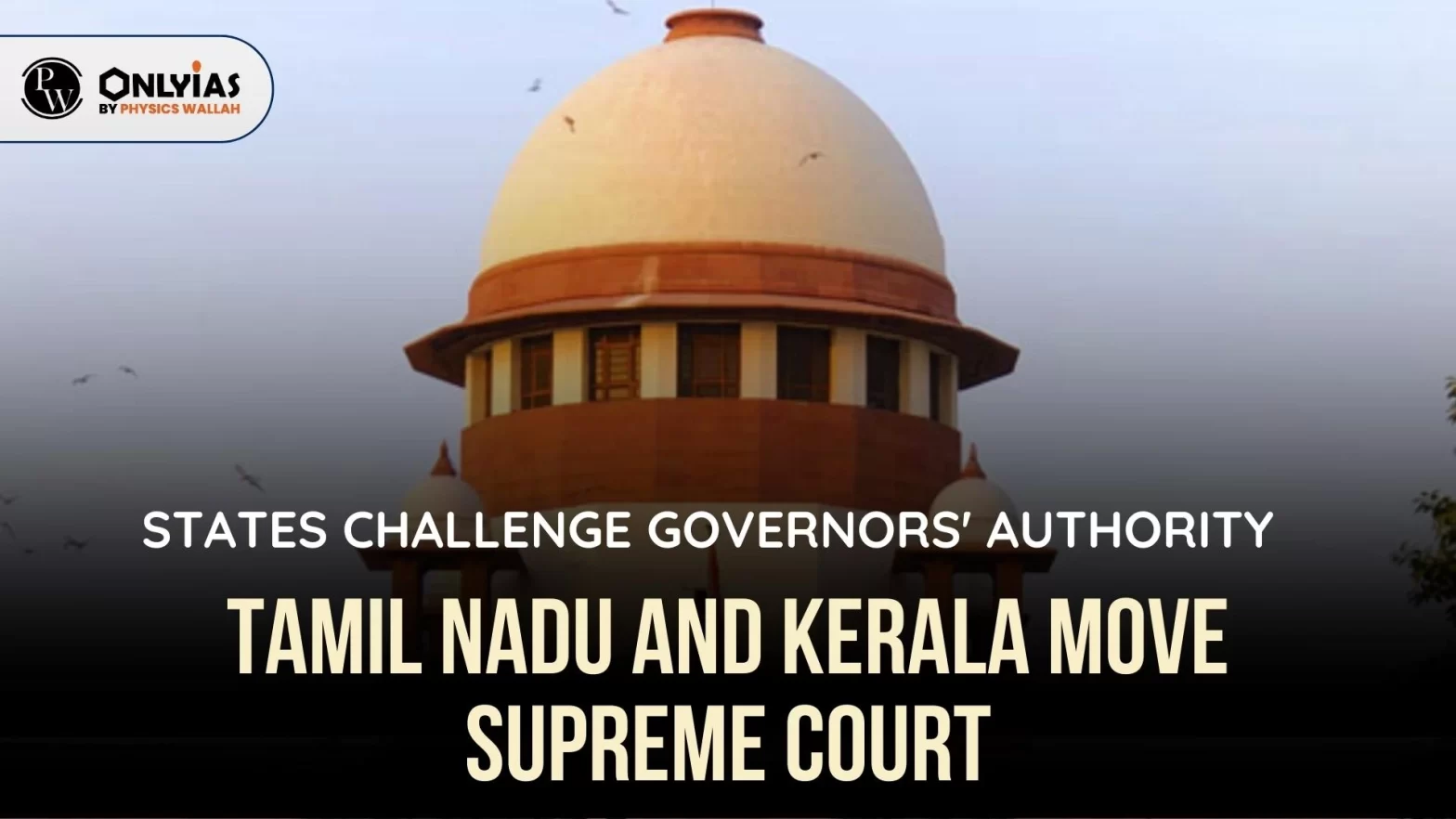Context:
State Governors in India – Key Points
- Appointment: As per Article 153 of the Indian Constitution, there shall be a Governor for each State, who shall be appointed by the President of India by warrant under his/her hand and seal.
- Executive Head: The Governor is the executive head of the State like the President for the Union.
Governors’ Bill Assent – Powers of the Governor Under Article 200
- Constitutional Authority: Article 200 of the Indian Constitution empowers Governors to promptly grant assent, withhold, or reserve bills for the President’s consideration. They may return non-money bills for legislative reconsideration.
- Immediate Action: As emphasized by the Supreme Court in response to a petition by the Telangana government, the phrase “as soon as possible” in Article 200 carries a constitutional imperative for swift bill evaluation.
Also Read: State Bills and the Veto Power of the Governor
Challenges
- Absence of a Time-Frame: This absence of time-frame for giving assent is misused by some Governors to delay and block the laws passed by the legislature.
- Misconception as a Right to be Chancellor: Some Governors thought that they have a right to be chancellors and tend to delay assent to any Bill that reduces or removes their power.
Governors as Chancellors of Universities
- Only a Practice: The idea of having Governors as ex-officio vice-chancellor of most universities is only a practice and is actualised through their founding statutes.
- Against Amendments: Some Governors appear to be hostile with the idea of amendments to university laws if they seek to leave out Chancellors, from the process of appointing vice-chancellors, or establishing new universities in which Governors are not chancellors.
- Recommendation by Justice M.M. Punchhi Commission on Centre-State Relations: It is time to have a national prohibition on Governors being burdened with the role of chancellor of any university.
The Path Ahead
- Prudent Decision: States ought to be prudent in their decision-making without leaving scope for questions on the merit of their decisions.
- Adequate Laws and Legislation: There should be clear and demarcated laws that prevent any scope of misconception or misuse of power.
- For example, the absence of any laid-down process to seek applications and assess the relative merits of applicants before appointing the chairperson and the members of the Tamil Nadu Public Service Commission is an issue.
- Collaboration: Governors are explicitly restricted in their functioning by the ‘aid and advice’ clause in the Constitution and ought not to misuse the discretionary powers available to them.
- Efficiency and Transparency: Both the elected and appointed officials are required to work with best of their efficiency in a transparent manner with a high moral and professional ethics to avoid such a conflict and achieve the desired result of serving best to the public.
Conclusion:
The ongoing legal challenge by Tamil Nadu and Kerala highlights the need for a judicious balance between the constitutional authority of State Governors and the imperative for efficient, transparent governance to prevent potential misuse of power and delays in decision implementation.
| Prelims Question (2021)
With reference to India, consider the following statements:
1. When a prisoner makes out a sufficient case, parole cannot be denied to such prisoner because it becomes a matter of his/her right.
2. State Governments have their own Prisoners Release on Parole Rules.
Which of the statements given above is/are correct?
(a) 1 only
(b) 2 only
(c) Both 1 and 2
(d) Neither 1 nor 2
Ans: (b) |
![]() 4 Nov 2023
4 Nov 2023
